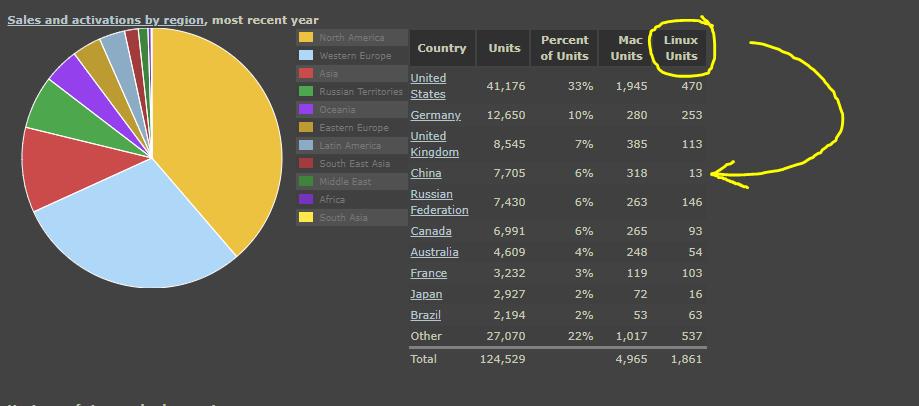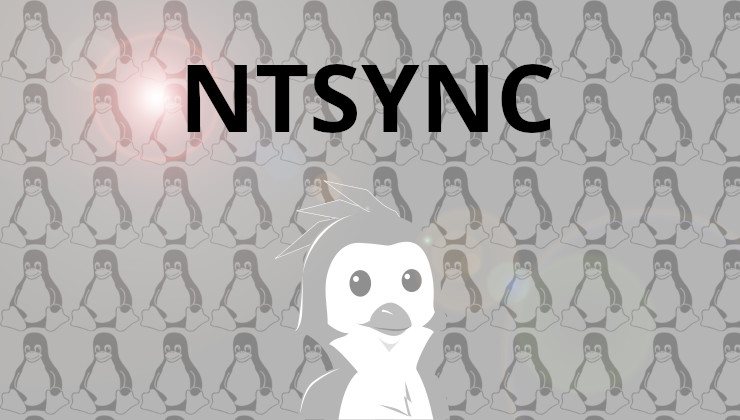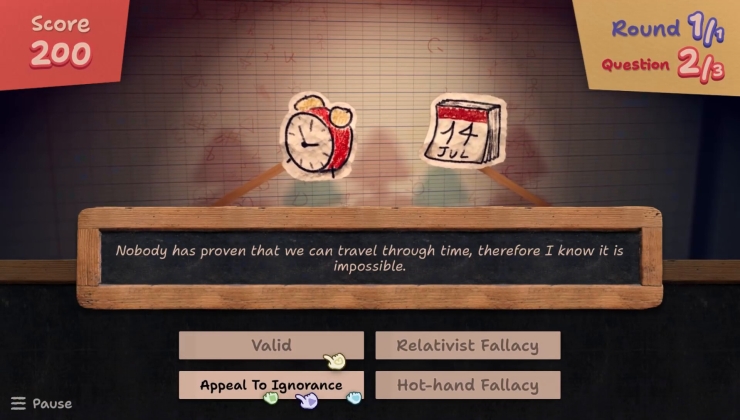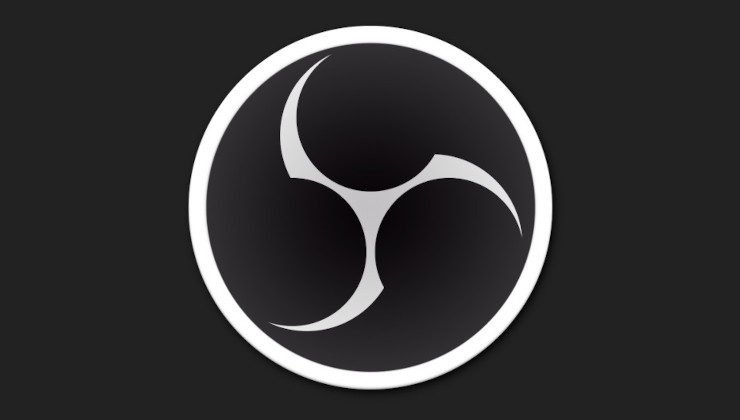Rise to Ruins, one of my favourite indie games that mixes in a city-builder with tower defense and god-like interactions with powers has a big update out. Also, it's going to finally leave Early Access later this year.
The "InDev 32" update brings in an overhaul of the entire particle system, which allows some much more interesting effects in the game. Particles in Rise to Ruins can now be "all shapes and sizes, and even animations" so nearly all the particle effects in the game have been updated and improved.
Additionally, you should see performance improvements since "all particle and emitter logic has been shuffled off to a new dedicated thread". They say if you have at least 4 CPU threads, you should see a pretty decent performance boost which will likely be especially noticeable when you have a larger village built up with a lot going on.
As for leaving Early Access, the developer has said it's going to happen this year. However, they made it clear that will not be the end of development:
I have no intention on stopping development once the game leaves Early Access, nor do I plan to stop anytime soon. As long as you are all here supporting my work, I will be here to support it too. After Release 1 expect plenty of additional content over, hopefully, years of future development.
They aren't giving an exact date just yet but they did make it clear the price is going to rise just before release.
I did have an issue launching the latest version, as it seems to by default on the fullscreen option use the resolution of my two monitors together and it fails to display. If you also have the issue, deleting the file "profiles/settings.properties" in the installed folder should reset it for you to windowed mode which allowed me to get back in. I've let the developer know about this to look into it.
Finally, they also showed off some stats on Twitter about their sales across a whole year "Feb 2018 -> Feb 2019":
It shows that China doesn't particularly sell well on Linux and overall Linux accounted for around 1.49% of the sales. That's not a lot (obviously) but it seems to be punching well above the currently listed market share for Linux on Steam (0.82%).
I'll certainly give the game another spin once I'm done with Surviving Mars. So far, I did not manage to survive more than two years with some of the recent changes that completely nerfed some towers.
It seems France has more %Linux than others with 3,18%, while USA has 1,14%, and China has 0,16%.
Germany doesn't surprise me at all, they're one of the most privacy conscious nations of the world. France is a pleasant surprise, but given that their parliament gives representatives a choice between Windows and Linux on their work computers, it probably shouldn't. Brazil is an interesting case, where Linux is sold preinstalled on cheap computers. The only other country I know this to be the case is Hungary, but that doesn't seem to show on the statistics.
Seems like Linux users are unusually highly concentrated in the rich markets of Germany and France, as well as the emerging market of Brazil.
Germany doesn't surprise me at all, they're one of the most privacy conscious nations of the world. France is a pleasant surprise, but given that their parliament gives representatives a choice between Windows and Linux on their work computers, it probably shouldn't. Brazil is an interesting case, where Linux is sold preinstalled on cheap computers. The only other country I know this to be the case is Hungary, but that doesn't seem to show on the statistics.
Brazil has some factors I think. The previous elected government did some work to foster open source software that still has some effect today, also there's a huge amount of pirated software, a lot of it Windows. But Windows 10 is a bit harder to pirate, and as it's flaws start to arise some people simply prefer to try Linux instead. And if they have an better than average performance/compatibility they will tend to stay with it simply because it's more stable.
Oh and about the game I bought and play it mostly on Itch, I need to reinstall it because I was having some issues.
Last edited by bgh251f2 on 25 Feb 2019 at 11:51 am UTC
https://twitter.com/hardpenguin13/status/1100001122377453568
Windows use is very entrenched in Japan, and Excel even more so. Also, many distributions and Linux apps don't make it easy or convenient to use kanji, and that hampers uptake even more of course.
Here are some of my takes on the subject:
https://twitter.com/hardpenguin13/status/1100001122377453568
Interesting! Note that France may have a strong Linux market share but if you compare with other countries (US, UK and Germany) it also has the lowest global market share for this game (units - Win, Mac and Linux - sold by inhabitant, assuming that there is more or less the same percentage of gamers vs global population in each country - again, only looking at France, US, UK and Germany -, which may not be the case). :)
Also, many distributions and Linux apps don't make it easy or convenient to use kanji, and that hampers uptake even more of course.Same problem with Chinese. You can install it, but it is a hassle to do so and often requires many more steps than just "sudo apt install myGreatChineseStuff".
Is there anything which could be done to make Linux more attractive to use in China? Because as a free to use OS it could do very well in China if it gained some popularity. Are Linux distros perhaps lacking in some translations for Chinese? Because that's seriously a big potential market for users and it is in fact the Chinese market that seems to pull down Linux's userbase numbers everywhere, including on Steam. We really need to do something about that.I'm no expert on it, just started learning Chinese, but I already noticed a bit:
Certainly a large number of apps lack localization, including but not limited to Chinese. Basically, using linux at the moment assumes you know English rather well if you use anything that goes beyond large apps like Steam.
Adding to that, I'm sure fonts are a problem with some apps as well. Especially with somewhat older apps, I don't think too many could even display Chinese.
As further proof of how fragmentation hurts, there are basically two standards for language support, ibus and fcitx (there are actually [more](https://blogs.gnome.org/happyaron/2011/01/15/linux-input-method-brief-summary/), but afaik those are the big ones). Needless to say, that isn't helping anyone, just making things more complicated.
None of the input methods I tried are as good as the one in Windows. None look as good, nor are they as smooth.
Hotkeys to change between input methods vary for distribution/window manager and/or installed input framework. It's a mess. At the very least, distro devs should stick their heads together and set some standards all adhere to. We all know this will never happen.
Honestly, if nobody takes some cash into their hands and funds some serious effort, I do not think this will ever improve too much.
Last edited by TheSHEEEP on 25 Feb 2019 at 4:32 pm UTC
Interesting! Note that France may have a strong Linux market share but if you compare with other countries (US, UK and Germany) it also has the lowest global market share for this game (units - Win, Mac and Linux - sold by inhabitant, assuming that there is more or less the same percentage of gamers vs global population in each country - again, only looking at France, US, UK and Germany -, which may not be the case). :)That is correct. Which is why China has influenced the overall Linux percentage on Steam much more significantly than European countries are able to.
Is there anything which could be done to make Linux more attractive to use in China?In addition to TheSHEEEP's great answer, I've already said this on another article, but since the Linux ecosystem is largely built on free labour, you have to find people with the skills to do the job and the motivation to do it without reward. In this case, you're most likely to find Chinese speakers who could do that localization work in China, where Linux is quite unknown and poorly supported. So how many people there will have that kind of motivation? Chicken and egg problem once again.
Is there anything which could be done to make Linux more attractive to use in China? Because as a free to use OS it could do very well in China if it gained some popularity. Are Linux distros perhaps lacking in some translations for Chinese? Because that's seriously a big potential market for users and it is in fact the Chinese market that seems to pull down Linux's userbase numbers everywhere, including on Steam. We really need to do something about that.I'm no expert on it, just started learning Chinese, but I already noticed a bit:
Certainly a large number of apps lack localization, including but not limited to Chinese. Basically, using linux at the moment assumes you know English rather well if you use anything that goes beyond large apps like Steam.
Adding to that, I'm sure fonts are a problem with some apps as well. Especially with somewhat older apps, I don't think too many could even display Chinese.
As further proof of how fragmentation hurts, there are basically two standards for language support, ibus and fcitx (there are actually [more](https://blogs.gnome.org/happyaron/2011/01/15/linux-input-method-brief-summary/), but afaik those are the big ones). Needless to say, that isn't helping anyone, just making things more complicated.
None of the input methods I tried are as good as the one in Windows. None look as good, nor are they as smooth.
Hotkeys to change between input methods vary for distribution/window manager and/or installed input framework. It's a mess. At the very least, distro devs should stick their heads together and set some standards all adhere to. We all know this will never happen.
Honestly, if nobody takes some cash into their hands and funds some serious effort, I do not think this will ever improve too much.
See this is one of those things that doesn't look "sexy" in a changelog for a distro and which most Linux distro users aren't crying out for, but look at how much it's hurting us. If Linux had great multilingual support, we could boost our numbers much higher and maybe already be at 2% on Steam. We have to address this problem somehow and make it a priority.
See this is one of those things that doesn't look "sexy" in a changelog for a distro and which most Linux distro users aren't crying out for, but look at how much it's hurting us. If Linux had great multilingual support, we could boost our numbers much higher and maybe already be at 2% on Steam. We have to address this problem somehow and make it a priority.It's just one more area where fragmentation isn't doing us any favors. Every different desktop manager translates its own menus and configuration panels from scratch even though they all control pretty much the same settings, every take on a Bluetooth manager needs interface strings to describe essentially the same controls, every image editor needs its own documentation translated... Launchpad alleviated this problem in part by suggesting existing translations from other projects on the platform, but it has been largely unusable for years and many projects have moved out to other, more modern translation platforms. Some of those can leverage their own translation memories or pull suggestions from machine translation systems, but they're still scattered and often retranslating the same things over and over. Many smaller projects just give you a .po file to handle on your own or just expect you to search through their git repository and make pull requests for whatever language files you can find.
In many cases I've seen, joining and keeping up with a project's translation efforts is also more of a hassle than it ought to be. You have to create new accounts here or there, get approved, build a program from source (reminder: we're translators if even that, not programmers), use this or that translation tool, upload your translations as git pull requests or e-mail them as attachments to a random guy... It's a goddamn mess and more often than not you get no context for the strings you're translating (I'll never stop saying that context is *everything* in translation) and you don't have any style guide or term base/glossary to reference to ensure consistency with the rest of the project. Often as not you're not even sure whether you're supposed to escape quotes with a backslash or use HTML entities for things like non-breaking spaces. Every damn project has its own workflow and expects you to hit refresh regularly on whatever page their translations or code live on to see if there are new untranslated strings that need attention. As a result you have unfinished translations sitting idly for months just because nobody noticed that a dev added a couple lines of code and pushed a new release three months back, until one of the users notices English text in one of their apps and goes to fix it, after which it takes another six months for the localized text to make it into a release (true story).
It would be a *dream* to have a monolithic platform like Launchpad take the stage again and not only standardize the translation interface itself but really encompass and streamline the entire workflow and create an extensive, shared repository where, over time, localizers would spend more time reviewing suggestions and less time rewriting the same stuff or jumping through hoops.
Wow, I needed to vent.
Anyway, all this is to say that it would be easier to get translation workforce on board if the relevant people didn't have to go through all that, and easier to make a concerted effort (possibly via bounties or other types of crowdfunding) to enhance the Chinese corpus for example if you didn't have to settle on a limited set of distribution/desktop/programs to work on at the detriment of all others (i.e. if your contributions to one project's localization could be largely reused in several others).
Last edited by Salvatos on 26 Feb 2019 at 2:04 am UTC
See this is one of those things that doesn't look "sexy" in a changelog for a distro and which most Linux distro users aren't crying out for, but look at how much it's hurting us. If Linux had great multilingual support, we could boost our numbers much higher and maybe already be at 2% on Steam. We have to address this problem somehow and make it a priority.It's just one more area where fragmentation isn't doing us any favors. Every different desktop manager translates its own menus and configuration panels from scratch even though they all control pretty much the same settings, every take on a Bluetooth manager needs interface strings to describe essentially the same controls, every image editor needs its own documentation translated... Launchpad alleviated this problem in part by suggesting existing translations from other projects on the platform, but it has been largely unusable for years and many projects have moved out to other, more modern translation platforms. Some of those can leverage their own translation memories or pull suggestions from machine translation systems, but they're still scattered and often retranslating the same things over and over. Many smaller projects just give you a .po file to handle on your own or just expect you to search through their git repository and make pull requests for whatever language files you can find.
In many cases I've seen, joining and keeping up with a project's translation efforts is also more of a hassle than it ought to be. You have to create new accounts here or there, get approved, build a program from source (reminder: we're translators if even that, not programmers), use this or that translation tool, upload your translations as git pull requests or e-mail them as attachments to a random guy... It's a goddamn mess and more often than not you get no context for the strings you're translating (I'll never stop saying that context is *everything* in translation) and you don't have any style guide or term base/glossary to reference to ensure consistency with the rest of the project. Often as not you're not even sure whether you're supposed to escape quotes with a backslash or use HTML entities for things like non-breaking spaces. Every damn project has its own workflow and expects you to hit refresh regularly on whatever page their translations or code live on to see if there are new untranslated strings that need attention. As a result you have unfinished translations sitting idly for months just because nobody noticed that a dev added a couple lines of code and pushed a new release three months back, until one of the users notices English text in one of their apps and goes to fix it, after which it takes another six months for the localized text to make it into a release (true story).
It would be a *dream* to have a monolithic platform like Launchpad take the stage again and not only standardize the translation interface itself but really encompass and streamline the entire workflow and create an extensive, shared repository where, over time, localizers would spend more time reviewing suggestions and less time rewriting the same stuff or jumping through hoops.
Wow, I needed to vent.
Anyway, all this is to say that it would be easier to get translation workforce on board if the relevant people didn't have to go through all that, and easier to make a concerted effort (possibly via bounties or other types of crowdfunding) to enhance the Chinese corpus for example if you didn't have to settle on a limited set of distribution/desktop/programs to work on at the detriment of all others (i.e. if your contributions to one project's localization could be largely reused in several others).
Thankyou for venting you raise amazing points. I really love your ideas, they deserve to be spread far and wide. This is absolutely something we should all be paying attention to.
Open an account, wait for approval, figure out how it work, submit, wait again, etc. Sometime you cannot translate and test, you have to translate without any option to see ingame if it makes sense. So again, wait for the dev to update the game, try and see that in context it doesn't fit well, or the sentence is too long for the GUI (often the case from english to french). Sometimes it's easy, a simple table with columns for different languages. Sometimes it's shared on internet. But sometime it's an online database, slow to process, heavy, not suitable for people without any tech profile. And i've seen several projects at 99,99% done, just because one line was removed/added without notice.
This has been on my wishlist for a while now, but I keep putting off actually buying it. Can anyone speak to how this compares to Rimworld?
As far as I can tell Rimworld seems to be more micromanaging than rise to ruins. As well as far more futuristic.
Is there anything which could be done to make Linux more attractive to use in China? Because as a free to use OS it could do very well in China if it gained some popularity. Are Linux distros perhaps lacking in some translations for Chinese? Because that's seriously a big potential market for users and it is in fact the Chinese market that seems to pull down Linux's userbase numbers everywhere, including on Steam. We really need to do something about that.
Ubuntu has the Kylin edition(https://distrowatch.com/table.php?distribution=ubuntukylin), supported by the Chinese Academy of Sciences. That seems like the best best bet for Linux in China atm.












 How to set, change and reset your SteamOS / Steam Deck desktop sudo password
How to set, change and reset your SteamOS / Steam Deck desktop sudo password How to set up Decky Loader on Steam Deck / SteamOS for easy plugins
How to set up Decky Loader on Steam Deck / SteamOS for easy plugins
See more from me